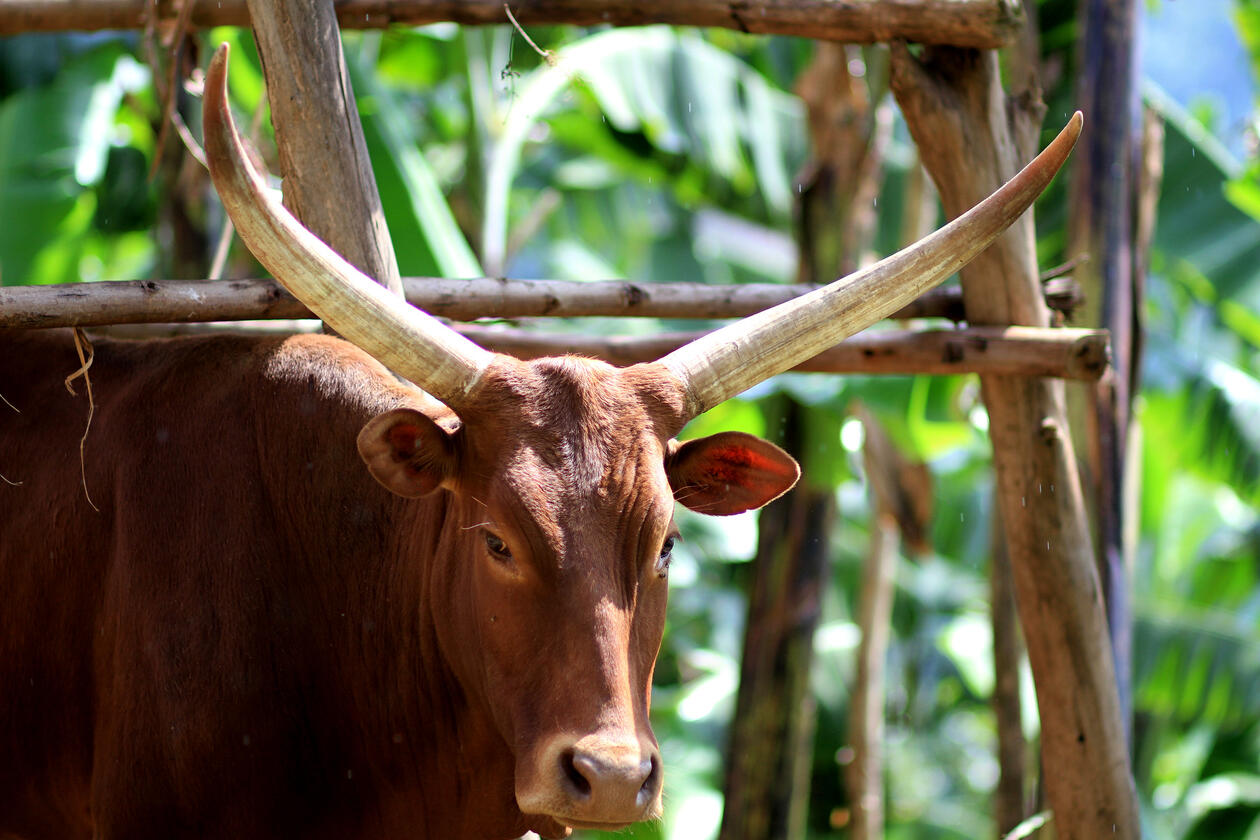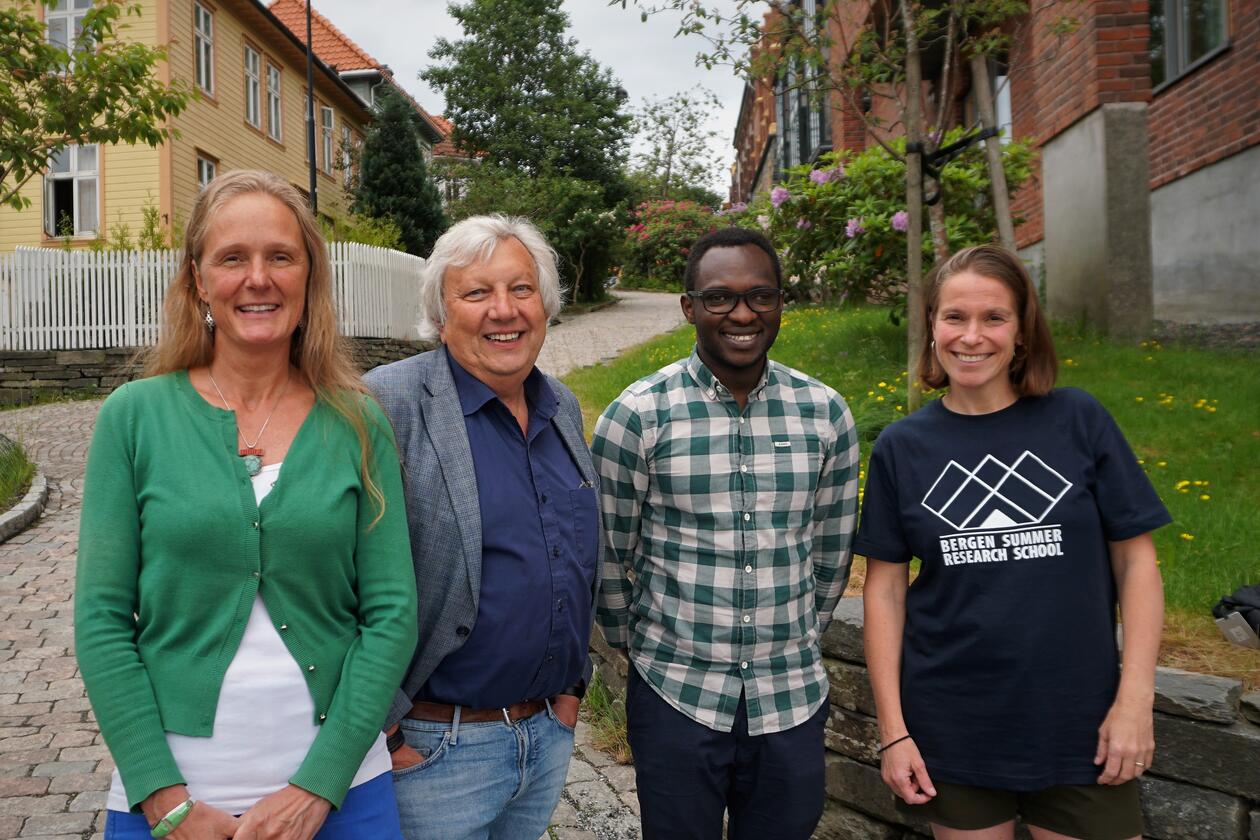What happens if we eat less meat when we get older?
As consumers we are often encouraged to limit our intake of red meat and dairy, for the benefit to both our health and to the environment. But what happens if we drop meat when we get older?

Main content
PhD candidate Theogene Habumugisha has investigated how a diet with little meat and dairy affects older adults. He also wanted to find out whether such diets are even appropriate in low-and-middle incomes countries and used Rwanda as a case study.
His project was inspired by the so-called EAT-Lancet Diet, a diet similar to the recently modified Nordic Nutrition Recommendations. Both emphasise human health and environmental sustainability. They promote a plant-based diet rich in fish and nuts with moderate consumption of low-fat dairy products and a limited intake of red meat and poultry.
The EAT-Lancet Diet caused controversy when it was launched in 2019 as a universal diet—for everyone, everywhere. Habumugisha asked himself whether these recommendations are applicable and even advisable to everybody.
A public health issue
“In Norway, people eat on average 110 kg of meat a year. In the United States the number is even higher. But if you look at India, Ethiopia or Sri Lanka, people eat a lot less. On the lower end, we find Burundi where people consume less than 10 kg of meat per person per year”, he explains.
A systematic review of the existing literature included 19 articles that studied the consequences of reducing meat and dairy consumption—all from Europe and North America. This meta-analysis told him that people risk losing up to 15 grams of protein per day. However, it did not seem to have an impact on people's overall health and body composition.
“A person needs about 60 grams of protein evey day, so a loss of 15 grams is not a problem for a Norwegian or an American. But for a person from Rwanda, where the average daily protein intake is less than 60 grams, this could be a problem.”
Meat and dairy are more complete sources of protein than plants, which means that we need to eat more plant-based proteins to provide for the same protein uptake. This might be a challenge when we age, since people tend to eat less when they get older.
Older people also experience a naturally declining uptake and utilisation of nutrients, including protein. Our bodies need protein to maintain muscle mass, which shrink when we age.
Older people simply need more protein to maintain their muscle mass. With loss of muscle mass comes frailty and a declining quality of life, so this is a public health issue.
Another issue of concern is how representative the current evidence is. Almost all studies on protein uptake in the aging are from high income countries. There are very few studies of African populations, and this is problematic when creating food recommendation or dietary guidelines.
“Only long-term and well controlled studies can provide a valid picture of the nutritional and health impact of these diets”, Habumugisha says.
Declining meat production
Rwanda is an interesting case due to its successful economic development and increasing life-expectancy, the highest in East Africa at 69-70 years.
“People tend to live longer in Rwanda, so what happens here might give us an idea of what will happen in neighbouring countries”, says Habumugisha.
In Rwanda, he and his team collected data from 417 persons above 55 years of age on the types and the quantity of foods they consume. They also wanted to find out if older people are aware of the health benefits of protein in older age, why they eat or do not eat meat, and what they think the consequences would be—both to their own health and to the environment.

Despite economic growth and increased life-expectancy, meat consumption in Rwanda has declined over the past 30-40 years. This could be explained by population growth, which doubled over the same period, higher prices, and new regulations in the livestock and agricultural sector.
It used to be customary to keep a few cattle grazing on the hills. But sometimes cattle would eat the crops. To mitigate conflicts with crop farmers, the government ordered all the cattle off the hills and into corrals in 2004. This caused a drop in meat production as people now had to reduce their herds.
The government has since 2006 distributed hundreds of thousands of cows to poor families to boost economic growth and fighting malnutrition.
“Rwandans love cows, and they love milk. They would like to eat more meat, but it has simply become too expensive.”
Habumugisha found that Rwandans in general are aware of the negative health consequences of meat and dairy but are unaware of the effects meat production has to the environment.
Ethical conundrums
“Demographically, the world population is getting older. Yet, we focus on child-health and their wellbeing. Of course, a child’s development is important both for a long life and for economic prosperity. But we need to prepare for the care of a growing older population. If they are not healthy, the cost for their care will increase.”
Proteins are important to keep older adults healthy but we also need to reduce the world’s meat consumption to meet the United Nations’ Sustainable Development Goals.
“Is it ethical to recommend the EAT-Lancet diet to the people in the Global South at this time? How can we ask people not to eat meat when they finally can provide for this protein source”, he wonders.
It might make sense from an environmental point of view, but for many people this diet will not provide adequate nutrition, especially the older population.
He discusses these perspective with a multidiciplinary team of supervisors in nutrition, global health, biological sciences, and the theory of science as well as his Rwandan colleagues in public health nutrition. This UiB Global Challenges PhD opportunity facilitated this collaborative team.
Although there is an overarching aim of reducing meat production and consumption the debate needs to be more nuanced.
Habumugisha says we need more data for this population to develop targeted interventions like nutritional guidelines and the promotion of recipes that meet the recommended nutritional intake.
“I think we need group- or population-specific recommendations. Earlier, we were only concerned about health benefits, but now we must combine health benefits and the environment. Should environmental considerations give way to health?”

